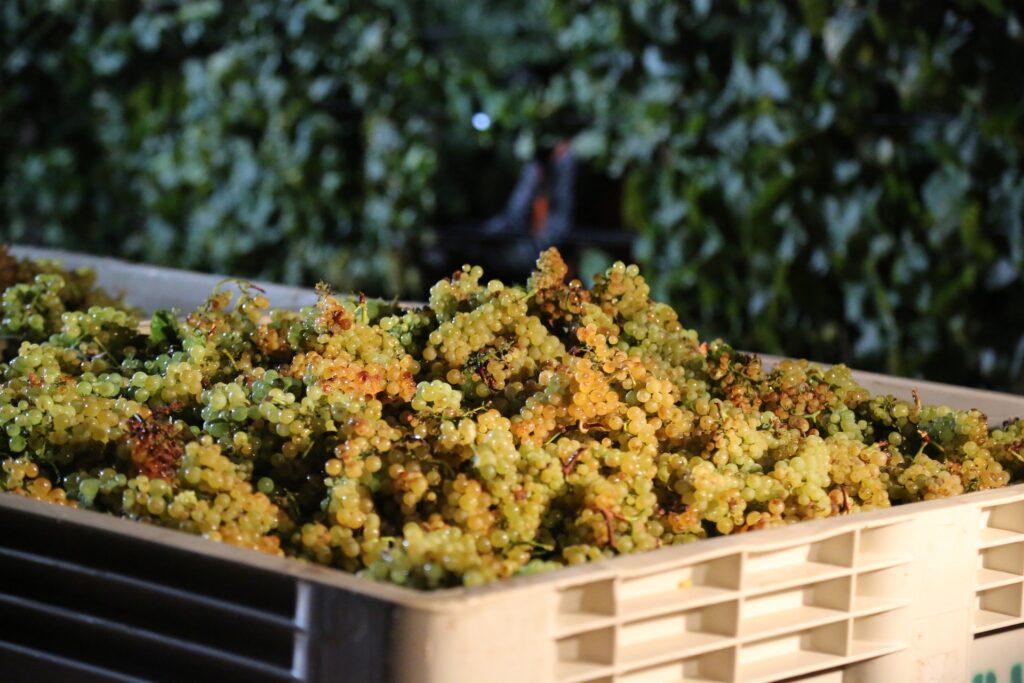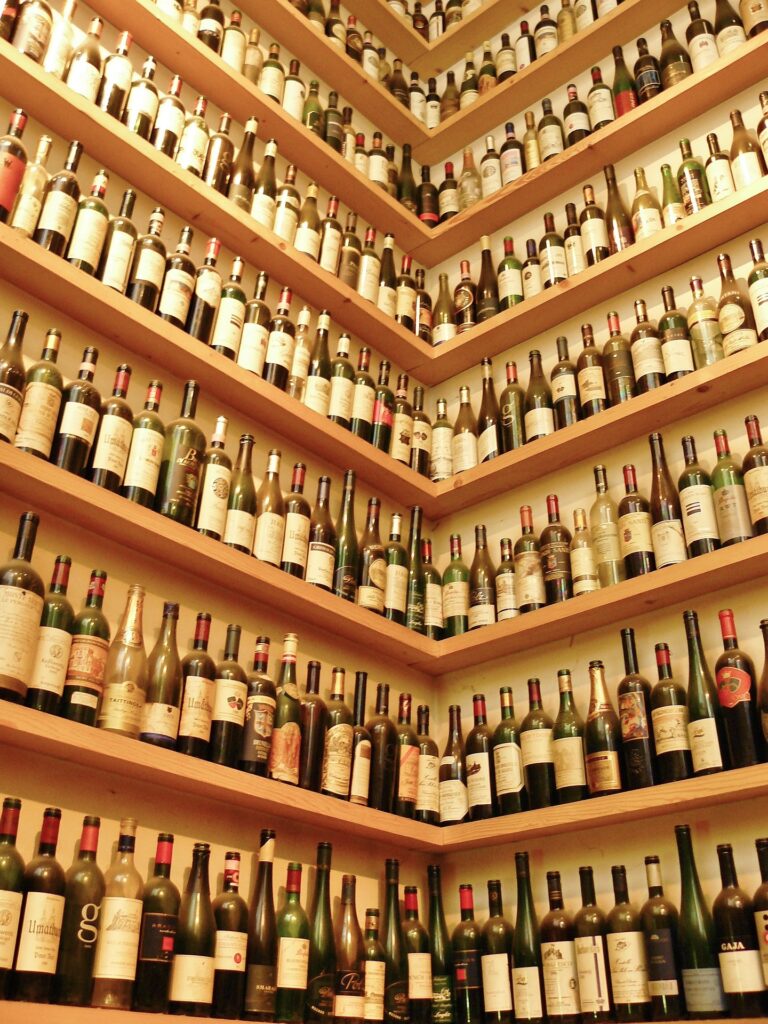Stefanos Kogias, tutor of WSPC and entrepreneur, shows the way to a journey of wine offering pleasure rather than being overrated.
Music is the wine that fills the cup of silence. After all, how could we disagree with the guitarist and member of King Krimson Robert Fripp about the inseparable partners of pleasure?
With creative ways of expression through music and wine, the taste consultant, WSPC presenter and initiator of the Wine Style company, the Food & Wine Experience project and the Thessaloniki Wine Show Stefanos Kogias discusses about wine and its developments with his one and only style.

HA: Which are the emerging foreign markets that Greek winemakers could target?
Stefanos Kogias: Regarding the Greek winemakers, I consider that initially they should target the capital markets, the ones they have already infiltrated for years now and important steps towards progression been made, such as Germany and the United States of America.
More generally, the countries in which the presence of the Greek element is evident. Many
they think they shouldn’t start there. My personal opinion is that in a country, where there is a significant percentage of Greek immigrants, who can commercially move forward Greek wine in real time, crucial conditions are created, such as distribution and the presence of these wines in places of trade and consumption, in order to then attract the interest of domestic consumers. Besides, there are certainly growing markets such as China, Central America and India, which are huge markets though and so many problems arise, especially in a country with a very small production such as Greece, which cannot respond easily in a long range demand.
H.A: In the context of the Wine Style events, are value for money wines promoted or less mainstream vinifications?
Stefanos Kogias: There are no wine rankings that are being promoted. Basically, not a single one wine is promoted. These are merely exhibitions through which all interested parties pitch in, whether they are small or large producers, whether they are wine importers or distributors. There is no limitation or way to a certain approach, style or level of wines on behalf of the producers.

Consumers tend to better respond to targeted marketing and that is one of the many faces of marketing. In our time, social media play a very important role, but the presence of an influencer, who will discuss or post content about a wine, is not enough. The wine needs to be on the market, always available for eventual demand. Anyone can post, participate in lively discussions about a wine, a label, or a winery but when these wines do not become available at wine cellars or restaurants then regardless of any
marketing action, there will hardly be any results.
Marketing, distribution and sales should follow a specific and targeted plan, so that one creates conditions for the emergence of the other with the purpose of sales being guaranteed.

The story-line of selling a wine is as complicated as any other product. An adequate supply of the product should be created at the market and on the other hand the marketing itself to create the exact demand of this product by the public.
H.A: What is your opinion on the use of marketing techniques as well as the image presented by the websites and social networks of Greek wineries to promote their products?
Stefanos Kogias: I am not an expert to criticize, simply expressing my personal opinion that in general, wine in terms of marketing and image globally lacks significantly compared to other products and much more in relation to the image of various media grind out for Greek wines, and specifically for wineries.
We are clearly lagging behind to a large extent, but in Greece the production units are not large.I am of course referring to the level of operations of the production units, with these being small, medium to medium sized. This essentially creates the context of the work carried out to shape the image of the private wineries of the wines to the outside world. Of course, there are
exceptions, but for most wineries the room for improvement is great.
There are wineries that you have a hard time finding an email address or even their contact phone number. Aesthetics is also a piece that is quite far from that of a high level. When the design and aesthetics of a winery’s site are entrusted to people, who have nothing to do with the wine industry, you also realize that we can’t expect too much. It takes a lot of funds that wineries have to allocate to turn to experts to create high aesthetic websites and seamless social media communication.
H.A: Do you think that wine competitions (both international and domestic) can highlight or not the product of a winemaker? The opinion that is quoted more often, even from iconic personalities in the wine industry that distinctions are not enough to strengthen the position of a winery’s brand and by extension winning consumers hearts and minds
Stefanos Kogias:
I would edit the sentence as follows: Distinctions in competitions cannot alone strengthen the position of a wine or a winery. It is beneficial for a wine to get high scores, medals and first places in competitions, but to establish the belief in the market that it is indeed a great wine these distinctions should be repeated to different competitions or scores in order to achieve a recognition.

The case of participating and winning a medal in a competition is particularly valuable since the producer can perceive the position of his wine in the industry. On the contrary, when a producer’s wine does not receive any distinction, he should be alarmed into start making improvements. So, the participation in a competition, domestic or international, is meaningful, it actually helps, not necessarily boosting sales but to grease the wheels of the producer to better understand his position in a much larger context.

H.A: What are the 5 key points that, which according to your opinion and taking into account international trends, a winemaker needs to pay greater attention to?
Stefanos Kogias: First and foremost, the price, of course depending on the value of a wine. It plays a primary role. The second is the image, i.e. marketing.
What emphatically is on the spotlight of our times is sustainability, which
are showcasing more and more wineries from around the world. But sustainability
it not merely the sensitivity that a winery displays to the natural environment. It is actually the management of a unit´s carbon footprint encumbering the environment, is the management of human resources and many other elements that arouse the interest of the modern public opinion, the modern consumer.
Wine tourism and visiting a winery is also a topic of great importance in
which more and more wineries are focusing on and investing in, as it is a
additional source of income, both through wine tastings and through the increase of
direct sales, while generating loyal consumers.

H.A: Foreign travelers to our country tend to trust popular labels of Greek bottled wines over less commercial labels. Is this view valid?
Stefanos Kogias: I don’t think a foreign visitor is aware of the popular or best selling wine labels in Greece. It’s more about the people who work and handle the Greek labels at the restaurants and
hotels visited by foreign visitors/consumers. They determine the exact wines that are available in these venues and the ones that a visitor can choose from. Foreign travellers, who do not know much about Greek wine, will prefer something they already are accustomed with, or they order a trusted foreign brand or if there is no such brand available, will order Greek wines from labels they know and are completely familiar with, i.e the classic international Cabernet-Sauvignon, Merlot, Syrah, Chardonnay, Sauvignon Blanc and so on.

If a consumer, who is a medium-sized wine enthusiast, will prefer labels, that they have read or heard about and that is where what I said before answering the question about competitions. If a wine, a producer has consistently distinguished himself the last years in international competitions receiving very high scores from various wine judges such as James Suckling, Jancis Robinson or Tim Martin, then subsequently will become well-known. Thus, if a Greek producer, small or large, manages to obtain such
accolades, he will be the ultimate winner.
Those, who are deeply involved in wine business, usually do not prefer labels they have already met, but visiting Greece or any other wine producing country, I guess they follow the same reasoning that I myself have when travelling abroad, i.e. trying labels I’m not familiar with, wishing to learn more and become accustomed with. That is, choosing varieties that are less well known, or wines with special production methods. Retsina is such a case and the excellent examples produced in recent years could help reverse its bad image abroad event at present time, something that would further improve the image of Greek wine even more.

H.A: Do you think that the pricing of bottled wine in catering businesses (restaurants, wine bars, hotels) is fair and affordable to the consumer and the winemaker respectively?
Stefanos Kogias: It’s clearly not fair. The problem with the overpricing of wines from majority of restaurants is literally huge, as in fact these businesses do nothing more than simply resell. Let alone in many cases do not even respect the wines the way they should.
What do I mean? Many times, we notice that wines are not stored aptly, are not duly served and under proper conditions. Many restaurants do not supply with suitable glasses while also not taking into account the temperature at which wines are served, which they overcharge, as they to all intents and purposes reckon that any profit , should be made from wine.
A restaurant should make its profit from what it actually sells, in actual fact, food. Wine acts as a supporting part and my opinion is that wine should provide pleasure to the consumer. If it is overpriced, it will automatically become a deterrent to enjoying another glass, something that will make a customer feel gloomy, instead of toddling off a restaurant with a smile.

There are grievous mistakes at the wine pricing policy and anyone can perceive it simply by noticing the policy followed by other European countries such as Spain or Italy. Italians will add a substantially low amount on top of the purchase price. That is what basically justifies the service. If, for instance, they buy a wine that is worth 15 Euros, they will not sell it for more than 5 Euros as their profit margin, a highly competitive price even for a liquor store where you will buy a bottle of wine, a
policy that encourages consumption and ultimately upgrades a country´s wine culture.
